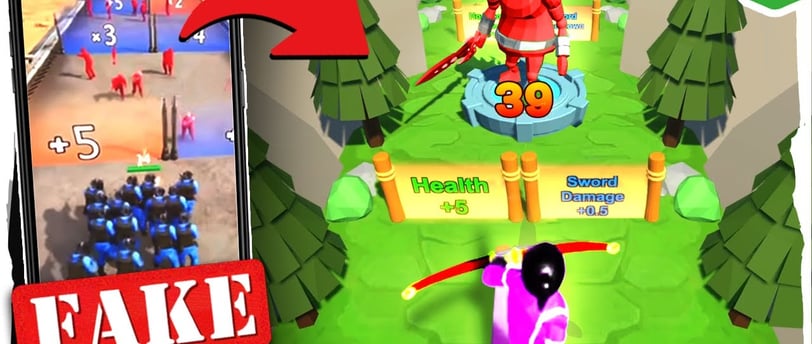✨ Building smart. Moving fast. Creating with purpose. Join the journey—apps, insights, and bold ideas, straight from the source.
Fake Mobile Game ads, to do or not to do?
Product management and gaming
Cyrus Addo-Mensah
4/27/20252 min read


🚀 Fake It 'Til You Make It? A Product Manager's Hot Take on Fake Mobile Game Ads
As a product manager who's seen enough mobile game ads to last three lifetimes (and probably owes YouTube Premium my undying loyalty), let me just say: the wild west of mobile marketing is alive and tap-ping.
You know the ones: that puzzle game ad where you "pull the pin to save the princess" — only to download it and realize you’re building farms and upgrading walls instead. Where’s my dramatic pin-pulling adventure, Brenda?! 🎯
Today, we’re diving into the glitchy world of fake mobile game ads: the good, the bad, the lawsuit-worthy. Buckle up, buttercup. 🎢
🎭 The Great Mobile Bait-and-Switch: Why It Happens
Here’s the dirty little secret: those fake ads actually work.
In a world where user acquisition costs are higher than my caffeine bill, standing out is everything. A spicy, chaotic, “can you solve this impossible puzzle?” ad pulls you in faster than a "limited time offer" notification.
More Installs: 📱 More eyeballs → more downloads → more revenue potential.
Broader Appeal: 🧠 Even non-gamers get curious about the "save the dog with a line" challenge.
Viral Potential: 🔥 Rage tweets about “this game isn’t what it advertised” = free marketing.
Fake it ‘til you make it... into the top charts, apparently.
⚖️ The Legal Tightrope: Slippery but Still Walking
Is it legal? Technically... yes. (For now.)
Most ad policies (looking at you, Google and Apple) require "representative gameplay." But enforcement? Let’s just say it’s about as strict as the "suggested serving size" on a bag of chips.
FTC Guidelines: 🚨 Ads must be truthful, not misleading — but “truth” is a stretchy concept here.
Platform Crackdowns: 👮♂️ Some platforms are starting to nudge back, but enforcement is rare unless there’s a full-blown public meltdown.
Translation? If you’re subtle enough with your creative interpretation, you can ride the wave.
🥊 Pros and Cons of Being the "Bait-and-Click" Hero
Pros:
🌊 Huge download spikes
📈 Viral exposure (even the bad PR often helps)
💰 Lower Cost Per Install (CPI)
Cons:
🤬 Angry users = bad reviews faster than you can say "refund."
🔥 Higher churn — users bounce faster than a rubber ball on Red Bull.
👎 Loss of brand trust long-term
📜 Potential regulatory fines if someone decides to actually enforce something
🧠 From the Product Manager Brain: What It Really Does
Let’s be real. Short-term, it works like a charm. 🪄
Long-term? It's like dating someone after they heavily edited their Tinder photos. Sure, you went out once... but will you stick around when reality hits?
Retention suffers. Users realize the game isn’t what was promised.
Lifetime value (LTV) drops. Angry users don’t spend money — they uninstall.
Reputation tanks. Building trust takes months; losing it takes one bad ad.
Essentially, you're pouring water into a leaky bucket. 🚰
💬 Final Verdict: Is It Worth Adopting?
If your entire business model is based on tricking people into installs and praying they stay... maybe. (No judgment. OK, some judgment.)
If you’re building something sustainable, don't do it, bestie. 🙅♂️
Instead, be creative without lying.
Make exaggerated versions of your gameplay.
Highlight the most fun (and real) mechanics.
Focus on real emotional hooks — humor, challenge, community.
Remember: clickbait gets clicks. Good games keep players.
You don’t want to be the company equivalent of “we have food at home.” 🚗🍔
✨ Closing Thoughts
Fake mobile ads are like fast food: cheap, satisfying in the moment, but leave you with regrets (and heartburn) later.
Real wins come from trust, great user experience, and ads that don’t require a lawyer to explain.
So, next time you’re brainstorming your ad strategy, just ask:
"Do I want to be remembered as a legend… or a lesson?"
(And yes, Brenda, I’m STILL waiting to pull that pin.)
